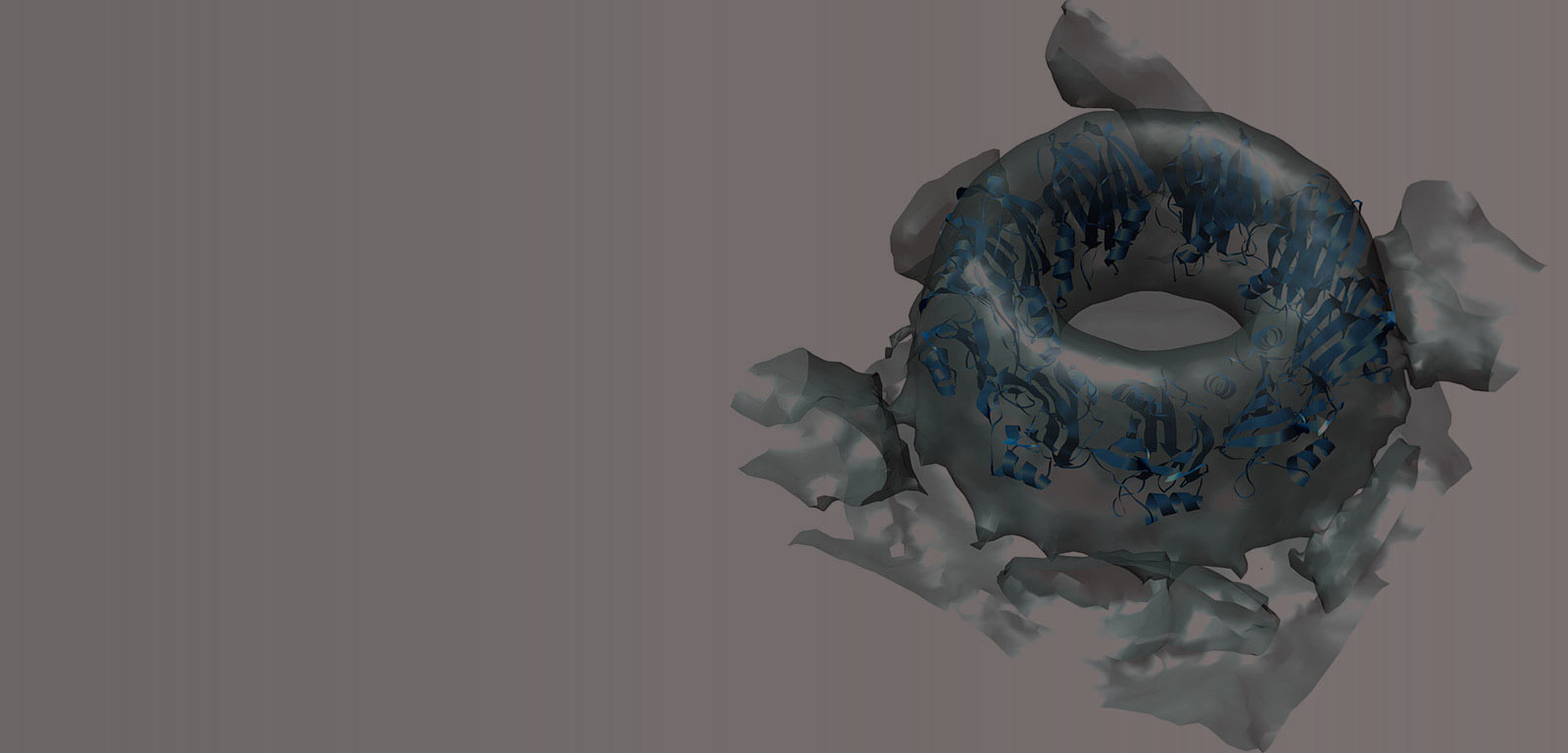Subject
Proteomics in Biomedicine
General details of the subject
- Mode
- Face-to-face degree course
- Language
- English
Teaching staff
| Name | Institution | Category | Doctor | Teaching profile | Area | |
|---|---|---|---|---|---|---|
| OMAETXEBARRIA IBARRA, MIREN JOSU | University of the Basque Country | Profesorado Agregado | Doctor | Bilingual | Biochemistry and Molecular Biology | mirenjosu.omaetxebarria@ehu.eus |
| OSINALDE MORALEJA, NEREA | University of the Basque Country | Profesorado Titular De Universidad | Doctor | Bilingual | Biochemistry and Molecular Biology | nerea.osinalde@ehu.eus |
| PRIETO AGUJETA, GORKA | University of the Basque Country | Profesorado Agregado | Doctor | Not bilingual | Telematics Engineering | gorka.prieto@ehu.eus |
| RAMIREZ SANCHEZ, JUAN MANUEL | University of the Basque Country | Profesorado Adjunto (Ayudante Doctor/A) | Doctor | Bilingual | Biochemistry and Molecular Biology | juanmanuel.ramirez@ehu.eus |
| AZKARGORTA MUGICA, MIKEL | Cic bioGUNE | Otros | Doctor | mikel.azkargorta@ehu.es | ||
| ELORTZA BASTERRIKA, FELIX ROBERTO | Centro de Investigacion Cooperativa en Biociencias (CIC-bioGUNE) | Otros | Doctor | |||
| MUÑOZ PERALTA, JAVIER | Biocruces-Hospital Universitario Cruces | Otros | Doctor |
Study types
| Type | Face-to-face hours | Non face-to-face hours | Total hours |
|---|---|---|---|
| Lecture-based | 20 | 30 | 50 |
| Seminar | 10 | 15 | 25 |
| Applied laboratory-based groups | 10 | 15 | 25 |
| Applied computer-based groups | 10 | 15 | 25 |
Training activities
| Name | Hours | Percentage of classroom teaching |
|---|---|---|
| Computer practicals | 25.0 | 20 % |
| Drawing up reports and presentations | 25.0 | 0 % |
| Expositive classes | 50.0 | 40 % |
| Laboratory practicals | 25.0 | 20 % |
| Seminars | 25.0 | 20 % |
| Utilization of Computer Programs | 15.0 | 67 % |
| Working with it equipment | 25.0 | 40 % |
Assessment systems
| Name | Minimum weighting | Maximum weighting |
|---|---|---|
| Attendance and participation | 50.0 % | 50.0 % |
| Attendance at classes | 0.0 % | 2.0 % |
| Attitude Scales | 5.0 % | 5.0 % |
| Computer practicals | 15.0 % | 15.0 % |
| Drawing up reports and presentations | 30.0 % | 30.0 % |
| Evaluation of assignments by topic (educational and summative evaluation). | 0.0 % | 3.0 % |
Learning outcomes of the subject
Describe the distinct methodologies for sample preparation prior to MS analysis: protein enrichment, protein digestion and protein/peptide fractionationDifferentiate between shotgun and targeted proteomics, as well as describe different bottom-up proteomics approaches: data dependent acquisition (DDA) & data independent acquisition (DIA).
Perform the steps involved in a workflow to identify the proteins present in a complex mixture.
Analyze protemics data. Filter MS-based data following specific criteria and perfom bioinformatic analyses to extract the biological meaning.
Plan an experiment using appropriate methods taking into account the constraints of the available technology, sample number, and the underlying hypothesis.
Ordinary call: orientations and renunciation
Attendance is compulsory. Excused absences may be made up with the activity indicated by the person in charge of the session.The intervention of the student in the classes will be valued, the questions and comments made in each session will be valued. A high participation and attendance to 100% of the sessions allows to pass the course.
An unexcused attendance of less than 80% of the sessions will result in the failure of the course.
In the case of absence with a justified cause (more than 30%), an exam/test of the subject adjusted to the specific situation will be carried out.
Extraordinary call: orientations and renunciation
The extraordinary call will involve the realization of an exam/test of the subject that will consist of the development of a topic of the subject to choose between two chosen at random.Bibliography
Compulsory materials
e-Gela platform from the UPV/EHU https://egela.ehu.eus/login/index.phpBasic bibliography
Manual de proteómica, Volumen I. Sociedad Española de Proteómica, 2014Manual de proteómica, Volumen II. Sociedad Española de Proteómica, 2019
Mass spectrometry data analysis in proteomics. R. Matthiesen. Humana Press, Springer, Heidelberg, 2013
Proteomics for biological discovery. T.D. Veenstra & J.R. Yates III. Wiley, Hoboken, New Jersey, 2006
In-depth bibliography
Aebersold R, Mann M. (2016) Mass-spectrometric exploration of proteome structure and function. Nature 537:347-355Cox J, Mann M. (2011) Quantitative, high-resolution proteomics for data-driven systems biology. Annu. Rev. Biochem. 80:273-299
Ebhardt HA, Root A, Sander C, Aebersold R. (2015) Applications of targeted proteomics in systems biology and translational medicine. Proteomics 15:3193-3208
Geyer PE, Holdt LM, Teupser D, Mann M. (2017) Revisiting biomarker discovery by plasma proteomics. Mol. Syst. Biol.13:942
Lundberg E, Borner GHH. (2019) Spatial proteomics: a powerful discovery tool for cell biology. Nature Reviews. 25(5):285-302
Meissner F, Geddes-McAlister J, Mann M, Bantscheff M. (2022). The emerging role of mass spectrometry-based proteomics in drug discovery. Nature Reviews DrugDiscovery. 21, 637-654.
Olsen JV, Mann M. (2012) Status of large-scale analysis of post-translational modifications by mass spectrometry. Mol.Cell. Proteomics 12:3444-3452
Picotti P, Aebersold R. (2012) Selected reaction monitoring-based proteomics: workflows, potential, pitfalls and future directions. Nat. Methods 9:555-566
Sabidó E, Selevsek N, Aebersold R. (2012) Mass spectrometry-based proteomics for systems biology. Curr. Opin.Biotechnol. 23:591-597
Uzozie AC, Aebersold R. (2018) Advancing translational research and precision medicine with targeted proteomics. J.Proteomics 189:1-10
Walther TC, Mann M. (2010) Mass spectrometry-based proteomics in cell biology. J. Cell Biol. 190:491-500


